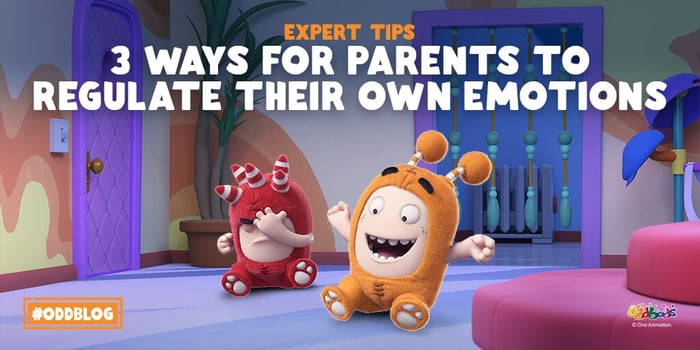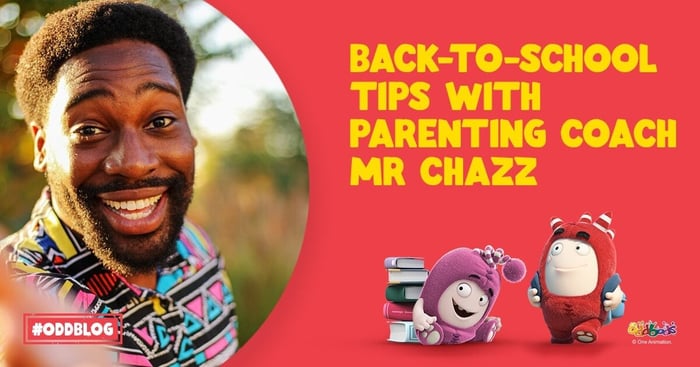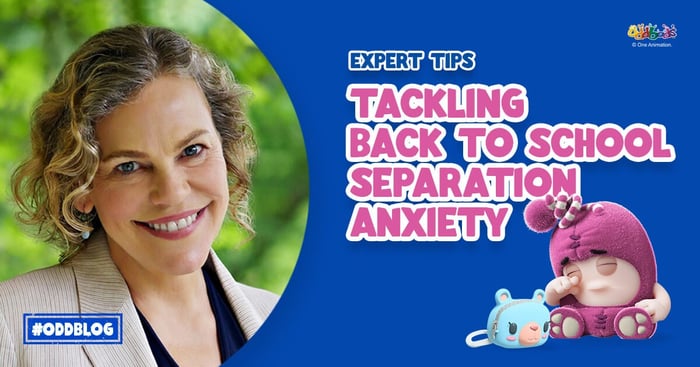In every household where there are children, there will be mayhem, pandemonium, and loud voices at times. Kids are learning each day. They will test boundaries, get frustrated, become bored quickly, and sometimes struggle to manage their feelings. Understandably, busy parents can get stressed. Overreacting in the heat of the moment can harm children and their parents. So what’s a better way to diffuse tantrums and manage these situations?
We asked author and child psychologist, Dr. Laura Markham, to share some advice to help parents regulate their feelings and emotions with their kids. In order for you to become a confident, loving, emotionally generous leader for your children, she believes you need to be at peace in your own heart.
In our conversation with Dr. Laura, she discussed 3 key tips for parents to better regulate their own emotions before handling their kids.
1. Monitor your mood all day long
Like the Hippocratic Oath for doctors: first, do no harm. That's what peaceful parenting is. We're not going to do harm. We're not going to visit our conflicts or our problems with our children. We're going to take care of our stuff inside first so that we can be the right kind of parents.
If you're in a bad mood, you're radiating those feelings to your kids. And if you're in a bad mood, you're full of stress hormones, so when something goes wrong with your kid, you're going to snap at them.
Because let's face it, things will always go wrong with your kids – they're going to exhibit childish behaviour. That's what happens when they're children! So your job as the parent is to stay centered and take responsibility for your mood. And if you notice something has gotten you off center – for example, you just received some bad news, you're worried about money, or you're hungry because you didn't eat lunch – it's your job to take care of that stuff. If you do, you can be available to your child in an emotionally responsive, emotionally generous way.

2. Stop, drop and breathe
When something happens with your child, and you notice that you're getting irritated, don't wait until you're yelling! You must immediately stop, drop, and breathe. That means you say, okay, I'm getting really upset at my kid. He just yelled at me, didn't cooperate with me, or hit his brother, whatever. Maybe you have to turn off the stove if you're cooking dinner, but stop what you're doing and drop your agenda. Your agenda might have been that you wanted him to sit down and do his schoolwork when he yelled that he didn't want to. Yes, he has to do his schoolwork, but he doesn't have to do it right this second.
So stop what you were doing, drop your agenda, take a few deep breaths, and then reconnect with your child. You're going to act like a grown-up. You're going to stay calm.
3. Coach your child to meet your expectations
So you go over to your child and say, “Whoa, you yelled at me. It sounds like you really don't want to do your schoolwork. Is that right?” And your kid might explain to you why they’re so frustrated or angry.

Read also: How to use humor to diffuse tantrums
If you're upset that your child is saying this stuff, take a deep breath and tell yourself not to take it personally; it's not an emergency. My child needs me to listen to him because he's upset. You can say, “What would be the worst thing about sitting down to do your schoolwork?”. He might respond that he doesn’t understand the math questions, for example. Or he might say, after being in school all day he hates having to do homework.
Bingo! You’ve now got a crucial piece of information.
You can say, “I understand. Let's roughhouse for a while. Let's get you laughing. Let's play some games. Let's have a snack, and then you can sit down to finish off the school work. Does that sound like a good deal? Okay, let's shake on that.”
So now you're problem-solving based on what he's told you. You’ve connected with your child with empathy.
When kids don't meet our expectations, instead of threatening or punishing them, our job is to give them enough support to meet our expectations. And notice we didn’t say a word about him yelling at us, except for that first comment.
So now everything's happy, he's sitting down, he's doing his schoolwork, everything's good. You hug him. You're so proud of him, you tell him. Then you can say, “I understand now that you were worried about doing your homework, and that’s why you yelled out. But you know, sweetheart, you never need to yell at me. I will always listen. I will always understand. You can always tell me how you feel, but you never need to yell to get me to pay attention.”
And your kid will probably say, “I know, I'm sorry.”
It would have been very different if you’d started the interaction by saying, “Don't you yell at me!”. You would have had a big fight, and your child wouldn’t have done his homework.
Remember, be curious about what your child is saying and why they're saying it. Don't assume it's an emergency. Your child is not trying to make your life hard. They're having a tough time at this moment, and that's why they did this.
Nobody’s perfect!
It’s hard for parents. We're just human beings – we're not perfect, we're going to make mistakes. But children don't need perfect parents. They need a parent who can recover and say, “I'm sorry, I lost my temper. I'm sorry, I yelled at you. You don't deserve to get yelled at. I love you. Let's try a do-over. I'm going to ask you again. We need to get our shoes on. It's time to go. And I'm not going to yell this time. But I need you to cooperate with me.”
And that's the essential part – you don't have to be perfect!
Dr. Laura Markham, the founder of parenting blog Aha! Parenting, trained as a clinical psychologist at Columbia University. She’s also a mom and author of three best-selling books, including Peaceful Parent, Happy Kids: How To Stop Yelling and Start Connecting.





